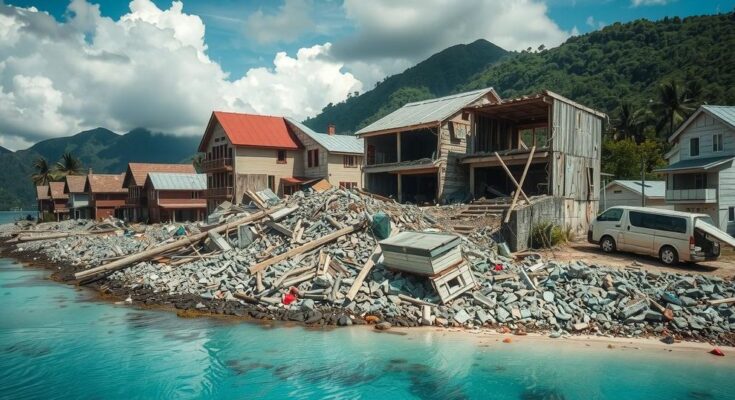January 12 has witnessed major historical events, including the devastating 2010 Haiti earthquake that left over 300,000 dead, the U.S. Congress voting for war against Iraq in 1991, tragic Hajj incidents in 2006, and the Supreme Court’s stay on farm laws in India in 2021. Each event highlights significant societal challenges and lessons on resilience and governance.
On January 12, significant historical events occurred, notably the catastrophic earthquake that struck Haiti in 2010, claiming over 300,000 lives and displacing millions. The 7.0-magnitude quake devastated the capital, Port-au-Prince, affecting roughly a third of the Haitian population. The repercussions of this tragedy resonate today, as Haiti continues to grapple with recovery efforts. Additionally, January 12 marks the historic vote by the U.S. Congress in 1991, authorizing military action against Iraq to liberate Kuwait, resulting in a swift military campaign that was notable for being broadcast live across America. Emergency incidents during the Hajj pilgrimage in Saudi Arabia in 2006, which resulted in the deaths of over 300 individuals, underscored the continual risks associated with mass gatherings. Finally, in 2021, the Supreme Court of India issued a stay on contentious farm laws following widespread protests, demonstrating the ongoing struggles and complexities within agricultural policies in India.
January 12 is a date entrenched in global history with numerous notable events marking this day. The 2010 Haiti earthquake was a profound humanitarian crisis that not only resulted in a high death toll but also left a lasting impact on the country, affecting millions and drawing international attention for relief efforts. Meanwhile, the 1991 Congressional vote in the U.S. set the stage for military actions that shaped geopolitical relations in the Middle East. Additionally, the tragic events during the Hajj pilgrimage in 2006 highlighted safety concerns in mass religious events, prompting discussions on crowd management and emergency preparedness. The Supreme Court’s intervention in India’s agricultural reforms in 2021 illustrates the vital role of judiciary in mediating social conflicts regarding legislative impacts.
In summary, January 12 is a date of reflection on significant historical and contemporary events, from natural disasters to pivotal legislative actions. The Haiti earthquake serves as a reminder of the fragility of human life and infrastructure, while the U.S. Congress voted to respond to international aggression, shaping global dynamics. The incidents during Hajj represent ongoing challenges in managing large gatherings, and India’s judicial challenges signify the complexities of agricultural reform and farmer rights. Each of these events offers lessons in resilience, governance, and the pressing need for effective responses to crises.
Original Source: www.firstpost.com




